- Home
- Shirlee McCoy
Home at Last Page 2
Home at Last Read online
Page 2
She reached the riverbank. The sound was louder there, carrying above the soft gurgle of water sliding against rocks. The yipping turned to frantic barking, and she finally found the source. A bedraggled puppy sat on the slopped surface of a boulder in the middle of the river, its paws scrabbling against the wet rock.
“How’d you get there?” she called, and the puppy howled, prancing a little in its enthusiasm.
“You can swim, you know,” she continued, taking an unconscious step forward, forgetting for just a moment that she wasn’t the woman she’d been, that walking on slippery rocks might not be the best choice.
“Come on, buddy,” she encouraged, taking another step and another. The water was cold, but not winter-cold. Just cool enough to make her shiver as it seeped through her yoga pants.
“Sunday!” someone shouted, the voice so much like Matt’s she spun around. Too quickly. Her balance too tenuous. She was down before she realized she was falling, water splashing up around her belly and back and shoulders. Her head glanced off a rock. Not hard. Just enough so she knew it had happened.
She lay there, winded, staring up at the night sky and the sparkling stars, thinking about Matt and that voice. Wondering who had called her name and if she’d imagined it.
And then he was splashing into the creek, running toward her, lifting her out of the water, and . . . of course . . . it wasn’t Matt. It was his brother Flynn. Taller. Darker hair. Broader shouldered.
“What in the heck were you thinking?” he asked, one arm firmly around her waist, the other on her wrist.
“About the dog,” she responded, but she didn’t think he heard. He was too busy slogging toward shore.
* * *
If Flynn Bradshaw had been one to curse, he’d be doing it now. Long-dormant phrases that he’d learned from his father filled his head and were right on the tip of his tongue. But, of course, he’d given up cursing and yelling years ago.
“Sunday, what were you thinking?” he repeated as they reached shore. His arm was still around her waist, his fingers curved into the sopping fabric of her T-shirt, his thumb resting against her bottom rib. He could feel it through the soaked fabric, jutting out from her too-thin frame.
“The river might be low, but it can still be dangerous,” he continued, easing his grip because he was afraid he’d hurt her. He was used to reining in horses and wrangling cattle. He was not used to being gentile with fragile women.
“I know, and I told you,” she responded, stepping away, her eyes too-large in her gaunt face. “I was thinking about the dog.”
“You don’t have a dog,” he replied, studying her face, searching for some truth that she wasn’t speaking or some hint of the confusion that he thought she must be suffering.
His brothers had said she continued to have memory lapses. He hadn’t been around enough to notice much more than her frailty and her obvious continued pain.
He’d worried about both those things.
But, the confusion was alarming, the fact that she’d left the house in the middle of the night and crossed the river filling him with fear and frustration. The kids had already lost their father. They couldn’t lose Sunday, too.
“Don’t look at me like that,” she said, a slight snap to her voice.
“Like what?”
“Like I’ve lost my mind.”
“You’re mistaking my look of concern for one of judgment,” he replied, keeping his voice calm and easy. Prior to the accident, Sunday had been the calmest person he’d ever met. Low-key. Unflappable. He’d visited the farm two or three times a year, because family should be important, and his nieces and nephews mattered. He’d never heard her raise her voice to any of her children or to Matt.
Since the accident, she still didn’t raise her voice. Not to her children. Not to Flynn or his brothers or to the many people who came to visit.
But, something in her had changed. Her placid, unflappable, soul-deep peace had been replaced by anxiety and fear. He could see it now, plainly written on her face and in her eyes, and he didn’t want to make things worse by upsetting her.
“I’m a grown woman, Flynn,” she said. “No one needs to be concerned if I walk to the river by myself.”
“It’s the middle of the night, Sunday,” he pointed out.
“And, I’m still a grown woman, and there is a dog in the middle of the river.” She pointed, her hand trembling.
Sure enough, there was a dog sitting on a rock.
Right in the middle of the river.
If he hadn’t been so focused on keeping Sunday from drowning, he’d have noticed before. “Most dogs can swim. The river is low. He could walk across easily, if he wanted to.”
“Probably,” she agreed, “but, sometimes we’re trapped by our own fear. Sometimes, things that other people think are easy look really hard to us.”
“Here, boy!” she called, walking to the edge of the river, water lapping up across her bare toes.
No shoes.
No coat.
Just yoga pants and a T-shirt.
And, that alarmed Flynn, too, because it was late summer, and autumn was cold in this part of the country.
He slipped out of his coat and dropped it around her shoulders. “We need to go back to the house. It’s cold, and you’re soaked.”
“So is he.”
“He’s a dog.”
“He’s scared,” she replied, moving away from his hand, her eyes dark in the moonlight, her skin pale. “Wait here. The water isn’t going to be much deeper than my knees, and I’m already wet. A little more isn’t going to make a difference.”
She’d have stepped back onto the slippery river rocks, if he hadn’t grabbed her arm and stopped her.
“I’ll get him,” he muttered.
And, she smiled, her eyes crinkling at the corners, her face easing into the soft sweetness he recognized from his visits before the accident.
“Thank you,” she said, the smile still in place.
“You can thank me by not coming down to the river in the middle of the night again. Or, at least, not wading into the water,” he responded more gruffly than he intended. He’d been looking for glimpses of the old Sunday for months, searching her face and her posture every time he was in town, trying to find hints of the person she’d been. He’d found them. Here on the riverbank where her children couldn’t see, and his brothers couldn’t breathe sighs of relief.
But, at least, he’d seen them, and that gave him hope that things would be back to normal one day; that Sunday would regain the pieces of herself that the accident seemed to have stolen.
That the children would have their mother.
She would have her life.
Things could go back to what they’d been before. When Flynn and his brothers hadn’t had to carry the responsibility of their brother’s choices.
He frowned, wading into the river, the cold water sloshing into his work boots, and then up to his knees. The dog stayed right where it was, barking excitedly as Flynn approached. He extended his hand, let the dog sniff his fingers and lick his knuckles.
Obviously, this was not an attack dog or a fearful animal that might bite.
“Alright, buddy. Let’s go,” he said, scooping the dog into his arms. It was a bag of skin and bones, its big paws huge on its spindly forelegs. A gangly puppy that would turn into a large dog. Its curly fur reminding him of Patricia’s miniature poodle, Tilly. His ex-wife had loved that dog. Probably more than she’d loved anyone or anything else.
It had taken him a long time to realize that.
He carried the puppy to shore and set it down near Sunday. She crouched, wobbling as she held out her hand and crooned something inane and sweet. Little pupper or Darling little pupper.
Flynn didn’t hear the words, but he saw the joy in her face, and he decided not to remind her that the house already had enough chaos without adding a puppy into the mix.
The puppy sniffed her fingers, licked her hand, then moved in
for the kill, lunging for her and knocking her backwards as he bathed her face with kisses.
She’d have fallen if Flynn hadn’t grabbed her shoulders, holding her upright.
She was laughing, the sound a little rusty, as he urged her to her feet.
“He’s adorable, isn’t he?” she asked, laughter lingering in her eyes and easing some of the lines of tension and pain that usually creased her forehead.
“If you’re into floppy-eared dogs,” he responded, and she met his gaze, that sweet smile still curving the corners of her mouth.
“Let me guess: You prefer . . .” Her voice trailed off, and the joy faded from her face.
He knew she’d lost the words.
That somehow whatever dog she’d planned to name was trapped in her accident-damaged brain.
“Working dogs?” he offered, hoping to ease the tension.
But, the moment was gone, and she seemed discontent, anxious, worried again.
“I guess,” she replied, her attention on the puppy who was staring at her longingly, his tail thumping the ground.
“This guy,” he continued, scratching the puppy behind his ears, “is more the frou-frou variety.”
He’d been hoping to distract her from her frustration, but it didn’t seem to be working. She looked . . . sad and a little defeated, and that made him want to fight harder to give her whatever it was that would heal the hurts.
Which, he supposed, was his Achilles heel.
He wanted to fix things, and sometimes that meant he wanted to fix people. Or, at least, help them solve their problems. It was one of the few traits he’d inherited from his mother. He considered it to be one of his greatest strengths and his biggest weaknesses, because some people wanted to be helped. Some didn’t. Some wanted to solve their problems. Some preferred to dwell in them.
“Sunday, people forget words all the time. I know the accident made things difficult.”
“Let’s not talk about the accident, okay?” she murmured.
“What would you rather talk about?”
“The fact that you’re here. I thought Sullivan said that you’d be in . . .” Her voice trailed off. Another word lost, and he could feel her tension hanging in the cool crisp air.
“Texas?” he offered.
“Right,” she agreed. “He said you’d be there until October or November. Something about horses.”
“Cattle,” he corrected gently, because she’d known all this before.
“Cattle,” she agreed, that one word filled with a thousand disappointments and frustrations.
“Spring and autumn are our busiest times at the ranch. I planned to stay in Texas through October, but Porter and Clementine really want a fall wedding, and it didn’t feel right to expect them to wait. They’ve already done more than—” He stopped, because he didn’t want Sunday to feel guilty for what his brothers had sacrificed. They’d given up their time, their money, their homes. They’d left lives in other places and created lives in Benevolence, Washington. All for the sake of Matt’s kids and for the farm those children would one day inherit.
And, for Sunday, because she’d loved them all so well and so selflessly.
None of them had put words to that, but Flynn knew he and his brothers felt an obligation to Sunday. Not just because she was Matt’s widow, but because she’d opened her home, over and over again, to three brothers-in-law who only made appearances when it was convenient.
“You can say it,” Sunday said quietly.
“There’s no need to say what we all know,” he responded. He’d always been a straight-shooter and honest to a fault, so he wasn’t going to pull punches or pretend things that weren’t true. But, the truth was, he’d shirked his responsibility after Matt’s death. He’d had a ranch to run, and he’d made that his excuse, because it was difficult to see six kids suffer and hard to watch Sunday struggle to recover. “But, if you need me to, I will. My brothers have been here while I’ve been in Texas. It’s my turn to be a good uncle to the kids.”
“That’s a very kind way of saying that I’m not pulling my weight around the farm,” she said, turning away and heading up the hill that led to the family chapel.
“You aren’t yet, but you’ll be back to it eventually.”
“So, people keep telling me.”
“You don’t believe it?”
She met his eyes, and he could see the truth she didn’t speak. “I’m not sure it matters what I believe. People are depending on me to get better, so I will.”
“Or, you’ll pretend?”
“A parent does what she has to, right?” She smiled, but there was no humor in her eyes or her face.
The puppy was trotting along beside her, and she seemed content to let him. Based on the looks she kept shooting in Flynn’s direction, she’d rather he not.
“You can go back to the house,” she said, proving that he wasn’t nearly as bad at reading women as Patricia had once claimed. “I won’t go back in the water. I promise.”
“Not even if the mutt jumps in?”
She glanced at the dog. “I might have to make an exception for that.”
“Then, I guess I’ll hang around until you’re ready to go back.”
“I came out here to be alone,” she said pointedly, still trudging up the hill at a pace just a little slower than Old Blue—the twenty-year-old retired Coon hound his ranch foreman owned.
“At this time of night, you could have been alone in the house.”
“I could have been,” she agreed, not making any excuse for her late-night walk, not offering any explanation.
He admired that. Admired the gumption that kept her moving up the hill even when he could see that her legs were trembling. There was defeat in the slope of her shoulders and the agonizing slowness of her pace, but she seemed determined to keep going.
Who was he to discourage that?
After all, he’d come to town to help, but he’d also come with the express purpose of encouraging Sunday to be more independent, to get more involved in her children’s lives, to take part in the running of the house and the farm again.
Because his brothers were worried.
Truth be told, he was worried, too.
But, he wasn’t going to tell her that, so he matched her pace and continued walking up the hill.
Chapter Two
Once upon a time, she’d wandered the farm without supervision. She’d wake in the middle of the night, her head filled with worry, her heart pounding frantically, and she’d ease out of the bed, pull on her old robe, slide her feet into the boots that sat by the back door and walk outside. She’d meander through the yard and the fields, the stars glittering in the blue-black sky. She’d listen to the silence and be filled with the kind of peace that only home could bring.
She had no clear memory of it. Just vague feelings that she’d wandered the farm alone at night. Vague thoughts that Matt had never come to find her, and that, sometimes, she’d wished he would.
Alone was a pleasant thing until you longed to be with someone who longed to be with you.
At some point in their marriage, she and Matt must have lost that longing for one another. There was no other way to explain what had happened. All she had were vague feelings and vague thoughts and vague memories of spending a lot of time alone.
Now, everywhere she went, someone followed.
It didn’t matter what time of day. Early morning. Afternoon. Evening. If she got up from the old easy chair or the couch, someone followed. Either one of the kids or one of her brothers-in-law or the housekeeper, Rosie.
Usually, they tried to be unobtrusive, leaning against a fence and pretending to look at text messages, peeking into rooms, guarding the doors as if she might somehow escape and never return.
At night, if she were quiet enough, she could have time to herself, time when she wasn’t being watched and worried over.
Tonight, though, Flynn was sticking to her like glue, following her over the apex of the hill an
d into the grassy expanse beyond. The chapel was just ahead, rising from the nearly-flat landscape, its white steeple gleaming in the moonlight.
Maybe Flynn thought she was heading there, or maybe he knew she planned to visit Matt’s grave. Either way, she didn’t want him to follow her.
“You can wait here, if you want,” she suggested, stopping and turning to face him. He had a broader, sturdier build than any of his brothers, his shoulders solid and thick with muscle, his biceps straining against his flannel shirt. He owned a ranch in Texas. Cattle. Not horses. She needed to write that down when she returned home. If he planned to stay for a while, she didn’t want to forget the details.
“What if I don’t want?” he asked, and, for a moment, she was confused. Not sure what he was asking, his words tumbling around in her head, disjointed and incomprehensible. She grasped them. One at a time. Piecing them together like a jigsaw puzzle.
By the time they finally formed a sentence, by the time she finally understood its meaning, she felt slow and stupid and frustrated.
“I . . . You . . . Waitress . . . Waiting . . . Wait . . .” Like his question, her answer refused to form easily in her mind. Her cheeks heated, the warmth spreading down her neck and to her throat and chest.
He was watching her, his gaze steady and unflinching.
Unlike some of the people who visited and watched her wrestle with words or memory, he didn’t seem uncomfortable or embarrassed by her struggle.
He just . . . waited.
She took a breath. Tried again, taking the words one at a time and putting them into an order that made sense. Slowly. Painstakingly. “I would appreciate it if you wait here. I need some time alone.”
There.
The words were stiff and formal, but the sentences made sense.
“Okay,” he nodded, still watching her steadily.
“Okay?”
“Are you surprised that I’d agree?” he asked, scratching the puppy between the ears as he continued to stare into her eyes.
“Maybe,” she admitted. “Your brothers watch me like hawks. I don’t think I’m ever very far out of their sight.”

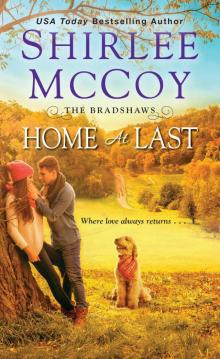 Home at Last
Home at Last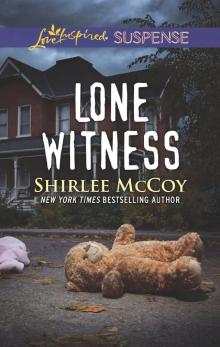 Lone Witness
Lone Witness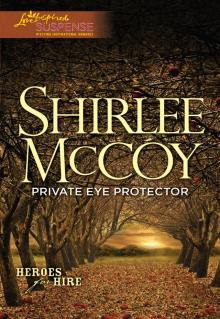 Private Eye Protector
Private Eye Protector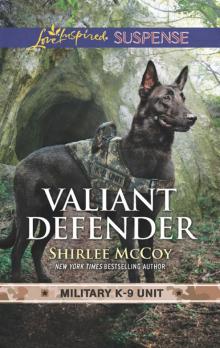 Valiant Defender
Valiant Defender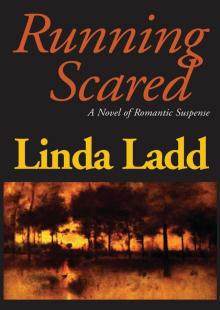 Running Scared
Running Scared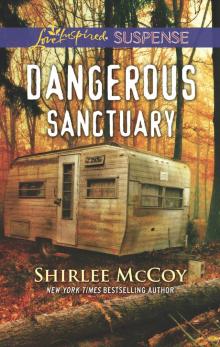 Dangerous Sanctuary
Dangerous Sanctuary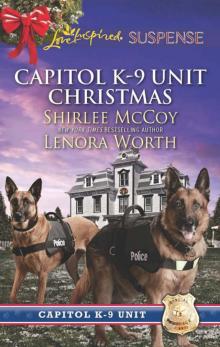 Capitol K-9 Unit Christmas: Protecting VirginiaGuarding Abigail
Capitol K-9 Unit Christmas: Protecting VirginiaGuarding Abigail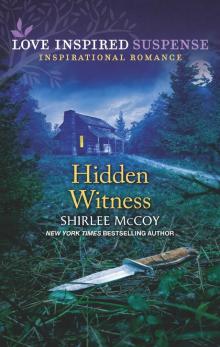 Hidden Witness
Hidden Witness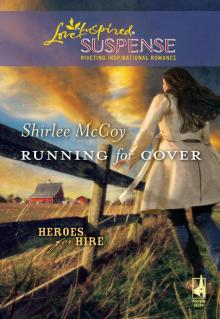 Running for Cover
Running for Cover Gone
Gone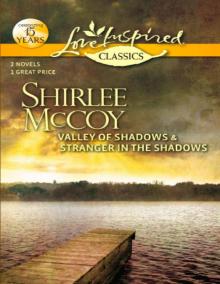 Valley of Shadows and Stranger in the Shadows: Valley of ShadowsStranger in the Shadows
Valley of Shadows and Stranger in the Shadows: Valley of ShadowsStranger in the Shadows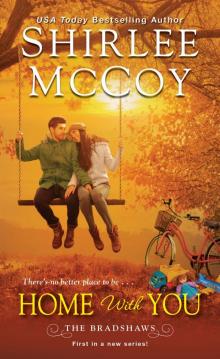 Home with You
Home with You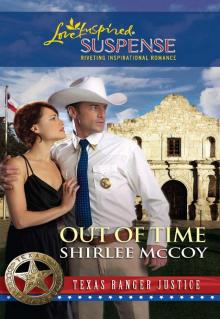 Out of Time
Out of Time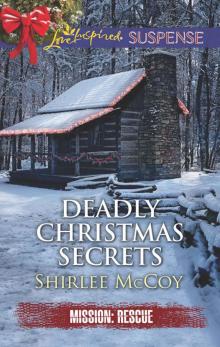 Deadly Christmas Secrets
Deadly Christmas Secrets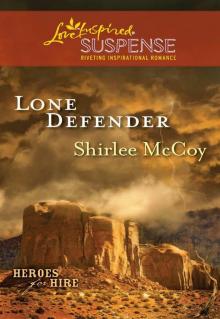 Lone Defender (Love Inspired Suspense)
Lone Defender (Love Inspired Suspense)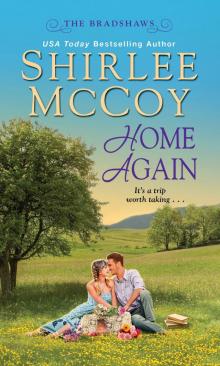 Home Again
Home Again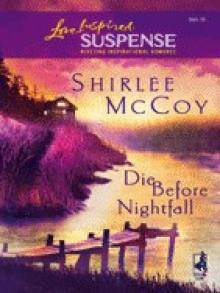 Die Before Nightfall
Die Before Nightfall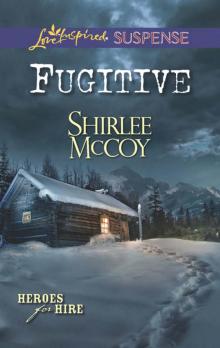 Fugitive
Fugitive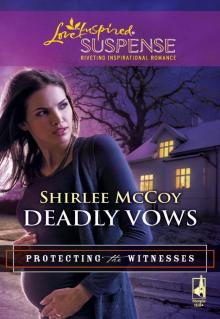 Deadly Vows
Deadly Vows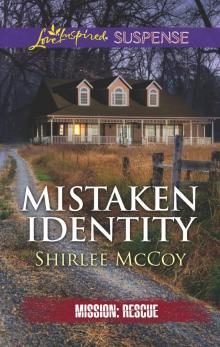 Mistaken Identity
Mistaken Identity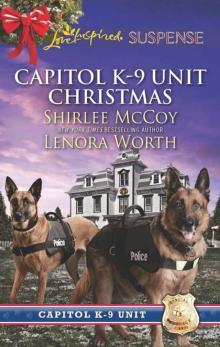 Capitol K-9 Unit Christmas
Capitol K-9 Unit Christmas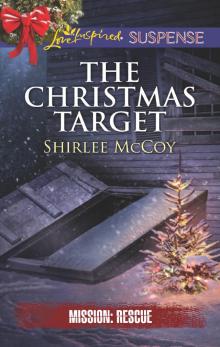 The Christmas Target
The Christmas Target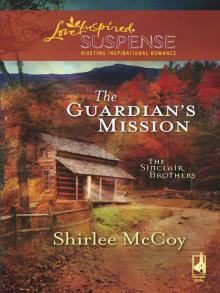 SB01 - The Guardian's Mission
SB01 - The Guardian's Mission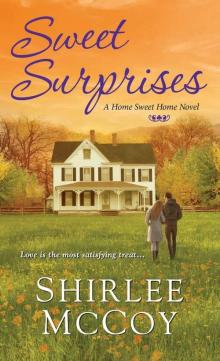 Sweet Surprises
Sweet Surprises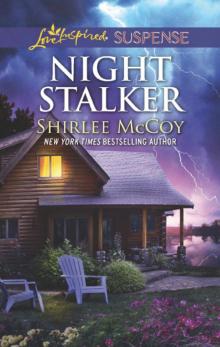 Night Stalker
Night Stalker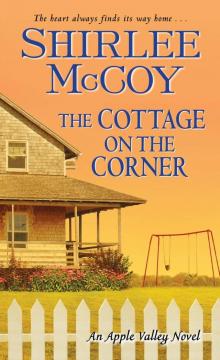 The Cottage on the Corner
The Cottage on the Corner Love Inspired Suspense January 2014
Love Inspired Suspense January 2014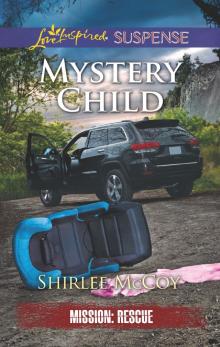 0373447477 (R)
0373447477 (R)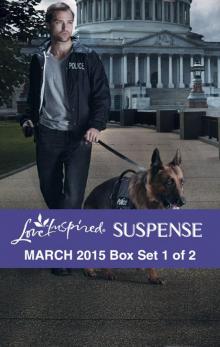 Love Inspired Suspense March 2015 - Box Set 1 of 2: Protection DetailHidden AgendaBroken Silence
Love Inspired Suspense March 2015 - Box Set 1 of 2: Protection DetailHidden AgendaBroken Silence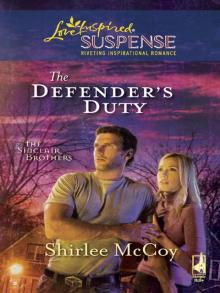 SB03 - The Defender's Duty
SB03 - The Defender's Duty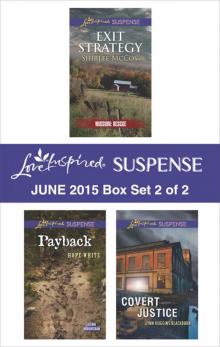 Love Inspired Suspense June 2015 - Box Set 2 of 2: Exit StrategyPaybackCovert Justice
Love Inspired Suspense June 2015 - Box Set 2 of 2: Exit StrategyPaybackCovert Justice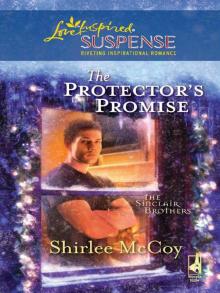 The Protector's Promise (The Sinclair Brothers)
The Protector's Promise (The Sinclair Brothers) Bodyguard
Bodyguard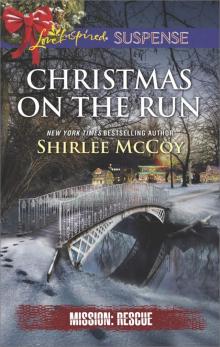 Christmas on the Run
Christmas on the Run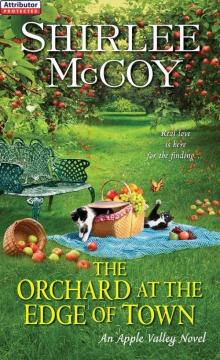 The Orchard at the Edge of Town
The Orchard at the Edge of Town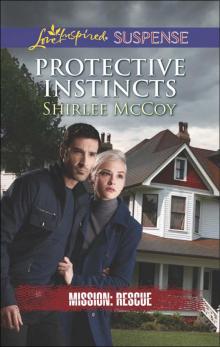 Protective Instincts
Protective Instincts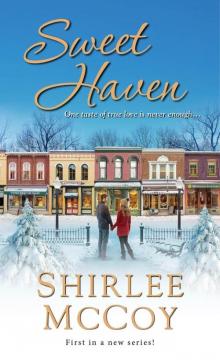 Sweet Haven
Sweet Haven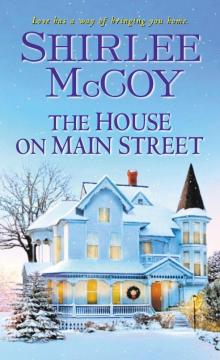 The House on Main Street
The House on Main Street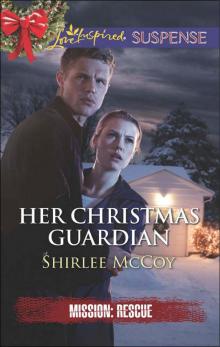 Her Christmas Guardian
Her Christmas Guardian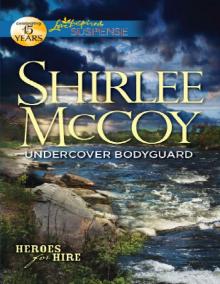 Undercover Bodyguard
Undercover Bodyguard